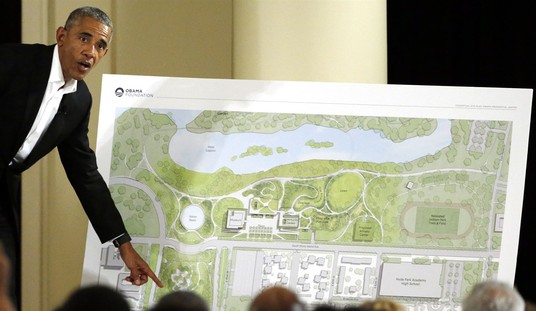CNBC reports, “It’s official: The housing crisis that began in 2006 and has recently entered a double dip is now worse than the Great Depression:”
Prices have fallen some 33 percent since the market began its collapse, greater than the 31 percent fall that began in the late 1920s and culminated in the early 1930s, according to Case-Shiller data.The news comes as the Federal Reserve considers whether the economy has regained enough strength to stand on its own and as unemployment remains at a still-elevated 9.1 percent, throwing into question whether the recovery is real.
“The sharp fall in house prices in the first quarter provided further confirmation that this housing crash has been larger and faster than the one during the Great Depression,” Paul Dales, senior economist at Capital Economics in Toronto, wrote in research for clients.
A couple of years ago in Commentary, John H. Makin reminded readers that the real estate bubble and its aftermath was “A Government Failure, Not a Market Failure:”
The idea that home ownership confers special benefits on American society is deeply embedded in our culture—so much so that our national tax policy confers a special benefit of its own on it. Home ownership is granted an advantage over all other forms of ownership in the form of an enormous deduction on the interest payments most individuals incur in financing their homes. Nothing else in the tax code comes anywhere near that deduction in scope or size. We have decided, as a nation, that home ownership is not only a good thing for an individual or a family, but that it is beneficial for the public at large and the country as a whole. Otherwise, why would it be necessary for the government to give it this kind of preferential treatment? Without it, clearly, we believe that the national rate of home ownership would be lower, and that a lower rate of home ownership would be deleterious to our common weal.
After 2000, the national push toward home ownership intensified in three dimensions, leading to a doubling of housing prices in just five years’ time. First, the Federal Reserve Board’s interest-rate policy drove down the cost of borrowing money to unprecedented lows. Second, a common conviction arose that home ownership should be available even to those who, under prevailing conditions, could not afford it. Finally, private agencies charged with determining the risk and value of securities were exceptionally generous in their assessment of the financial products known as “derivatives” whose collateral resided in the value of thousands of mortgages bundled together. The rating agencies understated the risks from these bundled mortgages by assuming that home prices were simply going to rise forever.
When the housing bubble burst in 2006, the damage to the financial system pushed the global economy into the worst contraction since the Great Depression. In the midst of the pain and suffering that have accompanied financial collapse and economic contraction—over $15 trillion in wealth has been lost by American households alone while, to date, more than 6 million job losses have boosted the unemployment rate to 9.4 percent—much of the blame has been placed on unregulated financial markets whose behavior is said to have revealed a terrible flaw in the foundation of capitalism itself.
This was a market failure, we are told, and the promise of capitalism has always been that the self-correcting mechanisms built into the system would preclude the possibility of a systemic market failure.
But the housing bubble only burst after government subsidies pushed house prices up so fast that marginal buyers could no longer afford to chase prices even higher. A bubble created by rigged financial markets and a government-sponsored obsession with home ownership is not a result of market failure, but rather, a result of bad public policy. The belief that home ownership, per se, is such a benefit that no amount of government support could be too great and no pace at which home prices rise could be too fast is the root of the crisis.
There was no market failure.
And thus the feedback loop continues. The Obama administration continues to push the policies that led to this meltdown, which puts further pressures on banks, which causes further taxpayer-funded bailouts. Shampoo and repeat — but perhaps, not for all that long:
[youtube 1RZVw3no2A4]










Join the conversation as a VIP Member